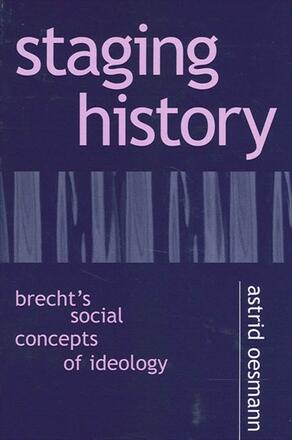
Staging History
Brecht's Social Concepts of Ideology
Alternative formats available from:
Examines Brecht's use of the theatre as a public arena for political change.
Description
Staging History analyzes the commitment to social change present in the theatrical and theoretical writings of Bertolt Brecht. Challenging previous notions, Astrid Oesmann argues that Brecht's work was less dependent on Marxist ideology than is often assumed and that his work should be seen as a coherent whole. Brecht used the stage to release political ideas into experimental spaces in which actors and spectators could explore the relationships between abstract thought and concrete social life. Oesmann places Brecht within the context of the major leftist theorists of the twentieth century, particularly Adorno, Benjamin, and Lukàcs, focusing on their discussions of realism, aesthetics, natural history, and mimesis. Oesmann elaborates upon the vision of a "counter-public sphere" in a number of Brecht's theoretical texts and plays—especially The Three Penny Trial and Fear and Misery of the Third Reich—that present the emergence of such a sphere in the face of fascism. By exploring Brecht's theoretical writings, selected plays, and recently published theatrical fragments, Oesmann reveals unpredictable constructions of history and surprising distinctions among various political ideologies, while also proving that Brecht remains vitally relevant to a "post-communist" world.
Astrid Oesmann is Associate Professor of German and Comparative Literature at The University of Iowa